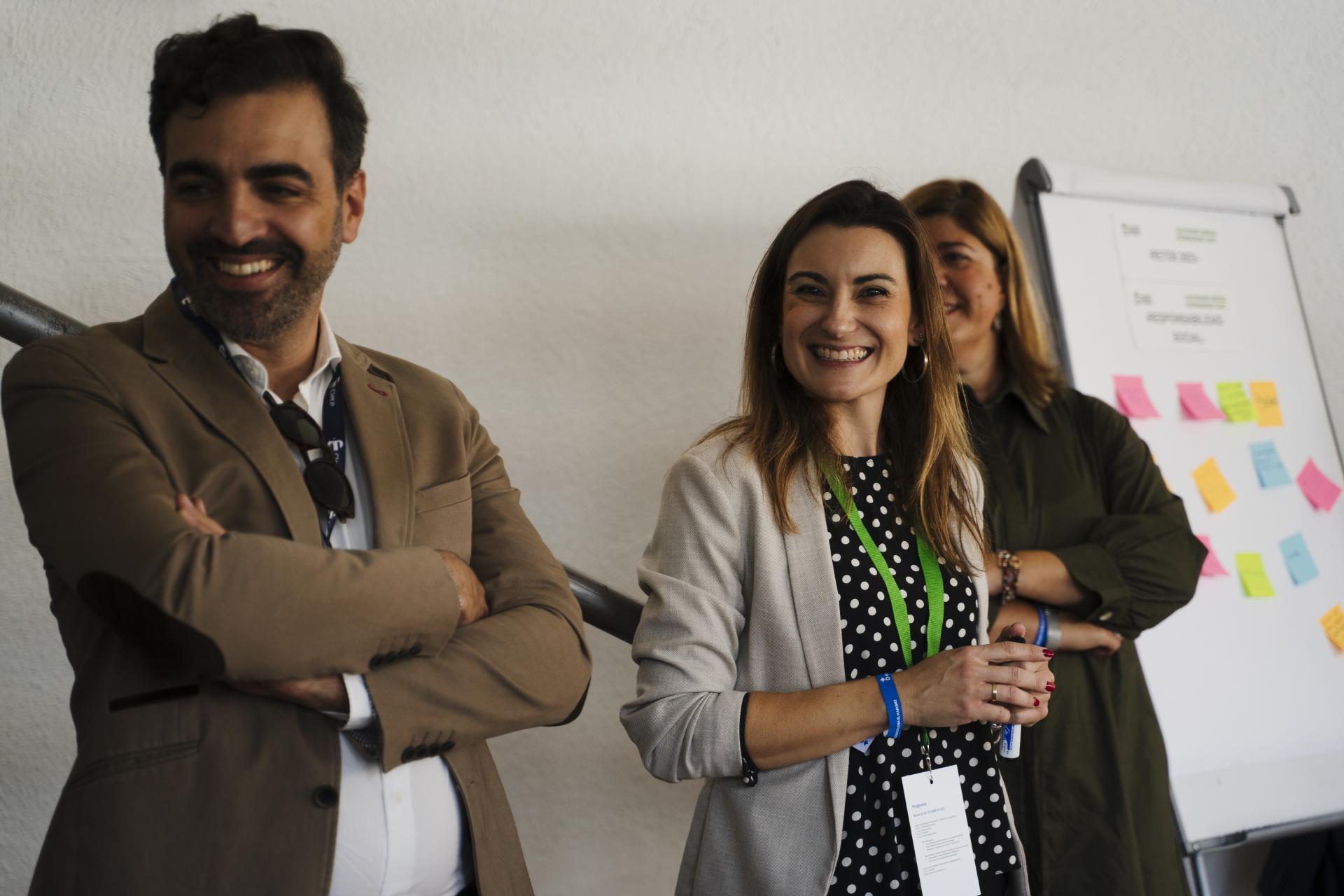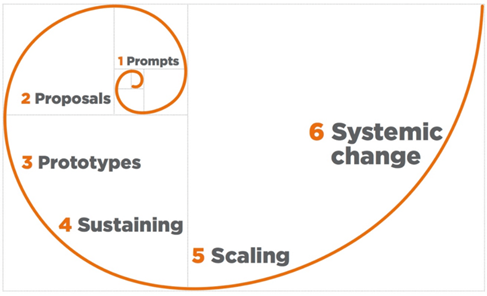

The challenge of scaling social innovations to achieve systemic change
The European Network for Innovation in Inclusion is preparing for a shift in focus, concentrating on the scaling stage of innovative projects and seeking to replicate successful innovations in collaboration with other European social entities
The European Union defines social innovation as “a social activity, both in its aims and means, related to the development and implementation of new ideas regarding products, services, and practices that meet social needs and create new relationships between public, civil, or private organizations.” This approach emphasizes the central purpose of any innovation effort: to generate significant social impact.
Social innovation is not merely a trend; it is a transformative movement aimed at addressing the most pressing challenges in our society. In this context, the annual Forum on Inclusive Employment and Entrepreneurship, organized by the European Network for Innovation in Inclusion from Acción contra el Hambre, will present innovative projects that have already demonstrated their effectiveness in other European countries and aim to scale for genuine systemic change.
The question is: how do we take these social innovations to the next level?
All of this and much more will be discussed at the 12th edition of the Forum —don’t miss it!
From idea to impact: the golden ratio of social innovation
Every social innovation project follows a pattern reminiscent of the golden ratio: the further it progresses in development, the greater its potential impact.

This cycle begins with indications and actions, moving through prompts, prototypes, and the development of a sustainable model or project, until reaching the desired scaling stage. This phase is crucial, as successful scaling not only amplifies the reach of the innovation but can also leads to systemic social change.
Currently, the European Network for Innovation is preparing for a shift in focus: attending to the scaling of innovative projects with the primary goal of replicating successful innovations in collaboration with other European social entities. By unifying efforts, we can maximize the impact of our interventions and ultimately contribute to real and sustainable change—creating a genuine positive impact on society.
Collaboration: The key to success
However, scaling innovations is not a task that can be accomplished in isolation. Scaling and growth are part of a collective effort that requires collaboration among various organizations and communities. Our two speakers will elaborate on this during the upcoming event on October 24th:
Madeleine Clarke, independent advisor and consultant, founder and former executive director of Genio, a nonprofit organization that manages philanthropic and public funding and offers training to scale innovative projects
Alicia García-Madrid, manager of European programs for social inclusion in Social Action in Acción Contra el Hambre
The 12th Forum will focus on sharing validated methodologies and tools that need a boost to spread and be adopted in the European landscape, such as the proposals explained by the speakers in the panel “Collaborative and Community Approach: Keys to Social Innovation".
Similarly, the exchange of experiences is also an invaluable asset. Innovations applied in other projects, such as those presented by Action Against Hunger in the innovative project call of the European Social Fund+ (ESF+), will also be showcased. These real experiences can serve as inspiration and guidance for those seeking to implement meaningful changes in their local contexts.
Learn more about the finalist best practices here
A space for experimentation
The European Network is not only conceived as an initiative to facilitate social innovation (through spaces to exchange experience and participate in European programs) but also as a genuine space for experimentation and training. In the coming years, our European initiative is preparing to transform and redefine itself within the international landscape of social entities.
The 12th Forum on Inclusive Employment and Entrepreneurship brings exciting news related to this new approach of the Network: social experimentation through the scaling of innovations and training, fostering a committed community. While we cannot yet reveal all the details, we can anticipate that this new practice will align with our commitment to maximize social impact.
In conclusion, if the challenge of scaling projects with social innovations is ultimately a challenge of collaboration, the European community holds the potential to transform not only its own realities but also to inspire change throughout the region. Looking towards the future, the European Network for Innovation positions itself as a beacon of hope and action, inviting everyone to join this collective cause.
